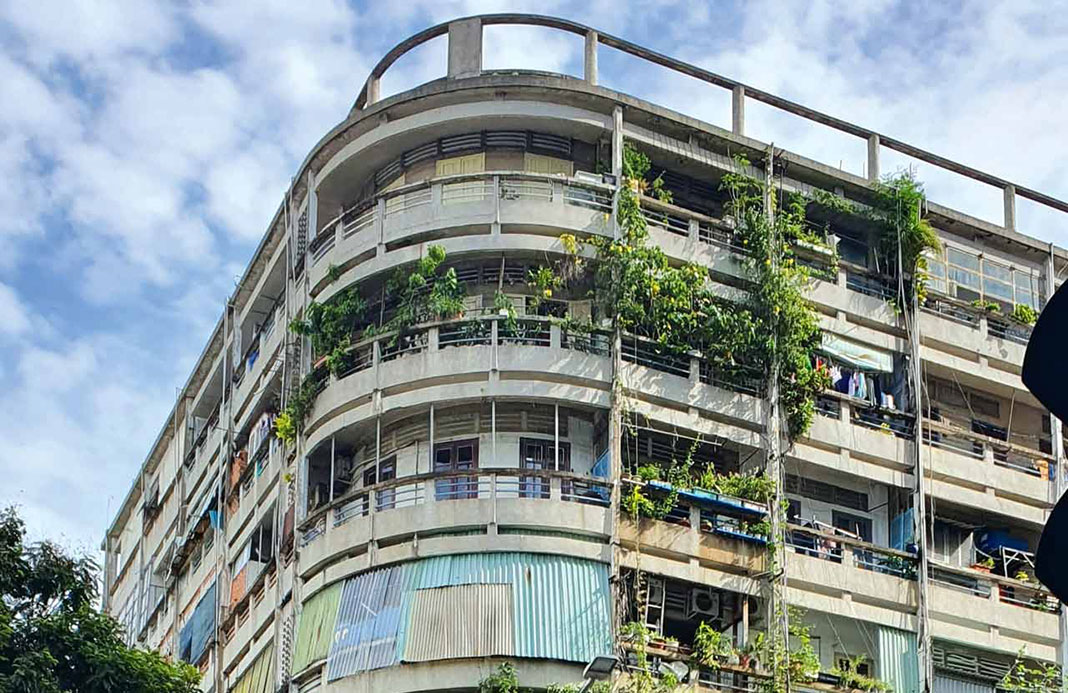In the draft of the amended Housing Law, the Ministry of Construction has proposed that the term of the certificates of the land use right and the ownership of apartments and other landed assets range from 50 to 70 years.
According to the ministry, the proposal is based on several legal bases. Firstly, the duration of projects is determined based on design documents or the actual life span. Secondly, in accordance with the Civil Code, the asset ownership will be terminated when the assets are destroyed.
Thirdly, land will be allocated and leased to project developers for no more than 50-70 years. Fourthly, buyers of land use right-attached apartments for sale, lease, and lease and purchase of which the land use term is based on the project duration, can use the land permanently. Therefore, the land use right is permanent, but the ownership duration of landed assets, comprising construction works and houses, is limited.
In addition, the Ministry of Construction pointed out the reality that the relocation and demolition of aging apartment buildings, which were built before 1994, has proven to be tough. Therefore, appropriate regulations are needed to support State agencies in taking back, demolishing and rebuilding aging apartment buildings. (1)
It can be said that the proposal is aimed at taking back, relocating and demolishing aging apartments. The legality and reasonableness of the relocation and demolition of aging apartment buildings are not taken into account, although irregularities and group interests may be seen in many cases, similarly to the State’s reclamation of land from residents at low prices and the handover of these land lots to investors who develop real estate products and sell them to residents at much higher prices.
As for the legal foundation of the Ministry of Construction’s proposal, the apartment use duration, despite being compulsory, is not related to the right to own apartments unless the regulations that the apartment ownership duration will end as soon as the apartments expire are worked out before the apartments are built and sold.
Projects may have expiry dates, but the dates may be extended, so the project use duration cannot be based to set out the apartment ownership duration, except when the apartment buildings are affirmed not to be repaired or upgraded upon expiry.
There will be many old apartment buildings acquired by other investors who will demolish and rebuild them for sale. Therefore, the apartment ownership duration should not be applied to dispossess current owners of their apartments without doing something to protect their interests, unless there are regulations on this issue in the apartment sale contracts.
 Moreover, although the asset ownership right will be terminated once the assets are destroyed, why will the assets be destroyed? If the assets are destroyed illegally, can owners ask for compensation? Even if the demolition of aging apartment buildings is legal, the demolition may be illegal pursuant to the above-mentioned regulation on the apartment ownership duration as the demolition may not take into account other agreements between apartment owners and the investors or developers of projects and/or the State, which demolishes and takes back projects. For example, apartment owners may be compensated an equivalent land area or a certain amount of money to seek new accommodation.
Moreover, although the asset ownership right will be terminated once the assets are destroyed, why will the assets be destroyed? If the assets are destroyed illegally, can owners ask for compensation? Even if the demolition of aging apartment buildings is legal, the demolition may be illegal pursuant to the above-mentioned regulation on the apartment ownership duration as the demolition may not take into account other agreements between apartment owners and the investors or developers of projects and/or the State, which demolishes and takes back projects. For example, apartment owners may be compensated an equivalent land area or a certain amount of money to seek new accommodation.
In other words, the apartment ownership duration is just a necessary condition, not a sufficient condition for the demolition of aging apartment buildings.
As for the regulation that land will be handed over or leased to project executors for no more than 50-70 years, the regulation should be applied to apartment buildings whose land is handed over or leased by the State, and the investors must clarify the regulation in the apartment sale contracts. Obviously, the regulation will not be applied to apartment buildings built on land lots where the investors have got the land use rights from other owners in the market, and not through the land lease and purchase from the State.
The fourth foundation is only appropriate in case the State directly hands over or leases land lots to investors with a fixed term. In addition, apartment sale contracts must include articles on the demolition of apartment buildings once they are out of date and the benefits and duties of apartment owners.
There are difficulties in demolishing aging apartment buildings but they are not related to the apartment ownership duration. The main problem is unreasonable compensation and resettlement policies, which do not obtain the consensus of a majority of residents living in apartment buildings.
In reality, many apartment buildings are new but the State must demolish them due to legitimate reasons. For example, if they fail to meet regional planning. Obviously, the apartment ownership duration makes no sense in this case. To reclaim these apartment buildings, the State can apply other legal foundations but must ensure the benefits of legal owners of apartments as well as offer reasonable compensation and site clearance policies.
In conclusion, to be safe, the State can consider and apply the apartment ownership duration. When apartment buildings expire and cannot be upgraded, the State has enough legal foundation to demolish them.
However, the apartment use duration does not mean the apartment ownership duration, and the cause of the demolition of aging apartment buildings is not necessarily the cause of the dispossession of the apartment ownership right.
1) https://thanhnien.vn/ap-nien-han-su-dung-can-ho-chung-cu-post1460823.html?io_utm_social=fanpage











